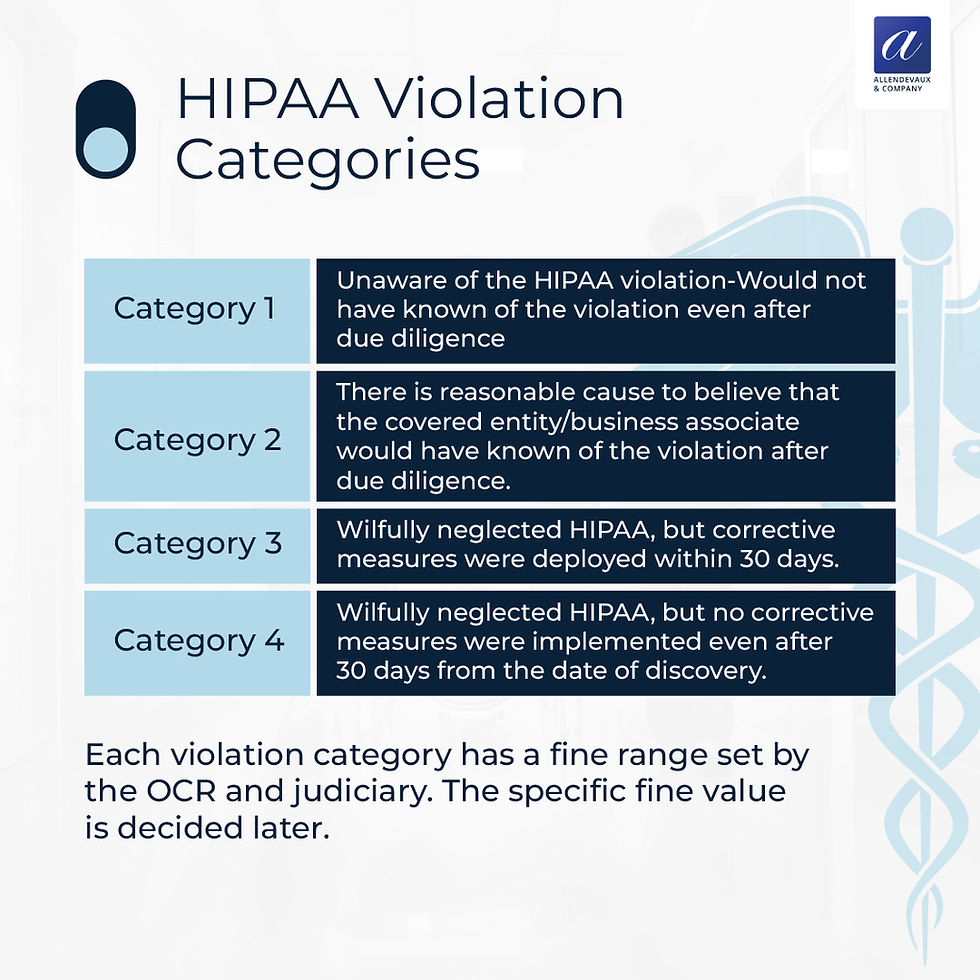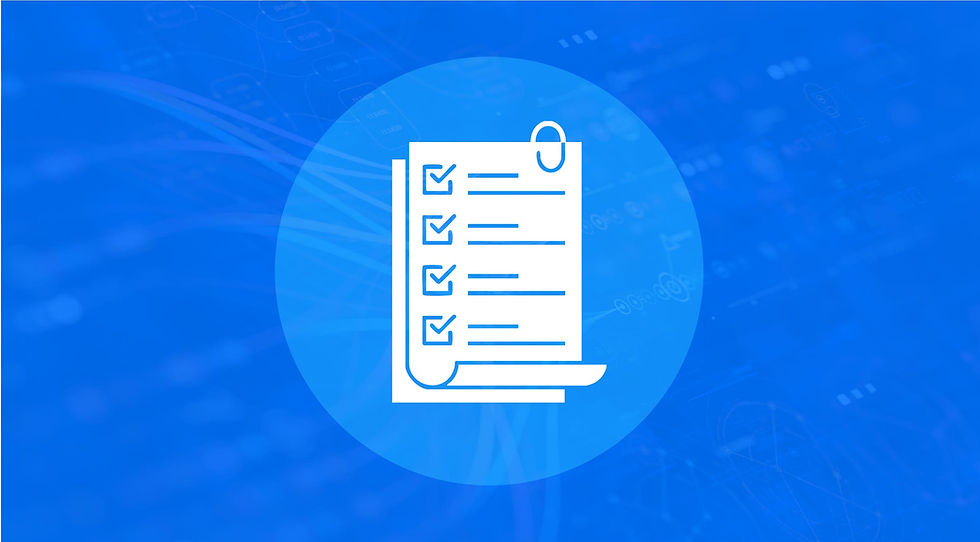HIPAA Compliance Guide: Protect Patient Data & Avoid Penalties
- bakhshishsingh
- Aug 1, 2025
- 2 min read
Is Your Healthcare Practice HIPAA-Compliant? Here’s What You Need to Know
The healthcare industry is under constant pressure to secure patient data and ensure privacy. One major regulatory framework governs this responsibility in the U.S.—HIPAA (Health Insurance Portability and Accountability Act). If you're a covered entity or business associate handling electronic Protected Health Information (ePHI), HIPAA compliance isn’t optional—it’s critical.
Let’s explore the essentials of HIPAA regulation, penalties for violations, and how you can ensure full compliance to protect both patients and your organization.
Understanding HIPAA: Key Rules You Must Follow

HIPAA consists of multiple rules that set the foundation for healthcare data privacy and security:
Privacy Rule: Grants patients control over their health information. It restricts how data is shared and mandates that healthcare entities take protective measures.
Security Rule: Focuses on securing electronic health information (ePHI). Organizations must implement administrative, physical, and technical safeguards to prevent data breaches and unauthorized access.
Breach Notification Rule: Outlines strict procedures for reporting data breaches. Organizations must perform risk assessments and notify affected parties and regulators within specific timelines.
HITECH Act: Strengthening HIPAA Enforcement

The HITECH Act (Health Information Technology for Economic and Clinical Health) complements HIPAA by:
Improving Patient Access: Ensures individuals can securely access and share their digital health records.
Enforcing Stronger Penalties: Introduces tiered fines for non-compliance, reaching up to $1.5 million annually.
Mandating Breach Protocols: Requires standardized notification procedures when a breach occurs, making timely reporting and response critical.
HIPAA Violation Categories and Penalties

Violations are classified into four categories based on intent and response:
Category 1: Organization was unaware of the violation despite reasonable diligence.
Category 2: Reasonable cause existed, but the violation was not intentional.
Category 3: Willful neglect occurred, but corrective actions were taken within 30 days.
Category 4: Willful neglect with no correction even after 30 days.
Penalty Ranges:
Category 1: $127 – $63,000 annually
Category 2: $1,000 – $100,000 annually
Category 3: $127 – $63,000 annually
Category 4: $50,000 – $1.5 million annually
Note: Final fine amounts are determined by the Office for Civil Rights (OCR) based on investigation outcomes.
Why Compliance Can’t Wait
Non-compliance with HIPAA not only results in hefty fines but also damages your reputation and trust with patients. With growing cyber threats and digital transformation in healthcare, ensuring HIPAA compliance should be a top priority for every provider.
How We Help You Stay Compliant
As a leading cybersecurity firm, we specialize in:
HIPAA risk assessments tailored to your organization
Policy creation and documentation support
Employee training on security best practices
Data breach response planning and audits
Whether you're a small clinic or a large healthcare provider, our team ensures that your systems, processes, and people meet federal compliance standards.
Ready to Strengthen Your HIPAA Compliance Strategy?
Don’t leave patient data protection to chance. Contact us today to schedule a compliance consultation and protect your practice from costly violations.
Conclusion: Protect Patients. Prevent Penalties. Ensure Compliance.
HIPAA compliance isn’t just a checkbox—it’s a commitment to privacy, integrity, and trust in healthcare. With the right approach and expert support, you can confidently secure sensitive data and build a resilient, compliant organization.





PayMyDoctor.com is the official website for paying medical bills, which allows patients to view, track, manage, and make online payments.